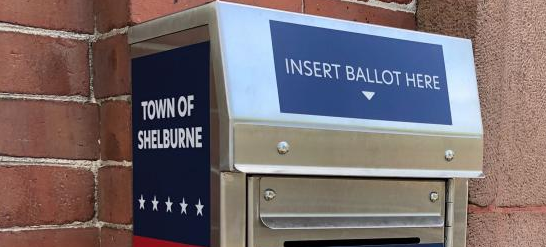
More than two dozen ballot questions filed in Massachusetts
At Wednesday’s deadline, Massachusetts counted 28 proposed ballot questions that could be decided by voters in 2022.
Massachusetts makes it easy to suggest a ballot question, but few survive the costly 15-month process required to place the matter before voters. Issues represented this year include the rights of “gig economy” workers, solar power tax incentives, smoking in multi-unit dwellings, and the public’s ability to buy fireworks.
Leaders of the state’s minority Republican Party submitted several proposed questions this year. These include measures that would require voters to present official picture IDs at the polls and let them only vote in person and only on paper ballots. Others would forbid the state from regulating or taxing gasoline, protect “children born alive,” and, without using the term, outlaw teaching “critical race theory” at the elementary or high school level.
The gig-economy question backed by Uber, Lyft, DoorDash, and Instacart would allow such companies to continue classifying “app-based” workers as independent contractors, while creating new benefits for at least some of them. It sets up Massachusetts to host the next big fight following California’s Proposition 22, which the companies won after spending a record amount promoting it.
In Massachusetts, ballot questions must first be deemed legal by the attorney general, then backers must collect and submit more than 80,000 signatures by mid-November. If the legislature then does not preemptively enact these measures before May 2022, sponsors must collect another 13,000 valid signatures in six weeks to place the measure on the ballot. Two years ago, only 2 of 13 questions successfully ran this gauntlet and appeared before voters in November 2020.
Also filed this week were two proposed constitutional amendments that could be decided by voters in 2024. One would enshrine “no-excuse” absentee voting in the state constitution, while the other would impose strict new financial disclosure requirements for state and local officials.
Update (9/1/21): The attorney general ruled that 16 of these proposed questions passed constitutional muster, but rejected most of those submitted by the state’s Republican leaders. Five proposals to change election procedures were barred because the state constitution does not allow curbing of “rights of the individual … including the freedom of elections,” while the question targeting “critical race theory” was similarly rejected as curbing constitutionally-protected free speech. The wording of the anti-abortion amendment was ruled to be “so ambiguous that it is impossible to determine … the proposed law’s meaning an[d] effect.” One Republican proposal that did survive the attorney general’s review would protect “consumer access to gasoline,” presumably by barring the state from participating in a regional cap-and-trade program.
Update (9/9/21): The state’s Supreme Judicial Court intervened and issued a preliminary injunction directing state officials to allow anti-abortion activists to collect signatures on a proposed question that the attorney general had deemed unconstitutionally vague. The one-sentence proposal states that “if a child is born alive, all reasonable steps, in keeping with good medical practice shall be taken to preserve the life of the child born alive,” without defining such terms as “born alive” or “reasonable.” Justice Dalila Wendlandt ordered that proponents be allowed to gather signatures while their legal challenge proceeds in court.

